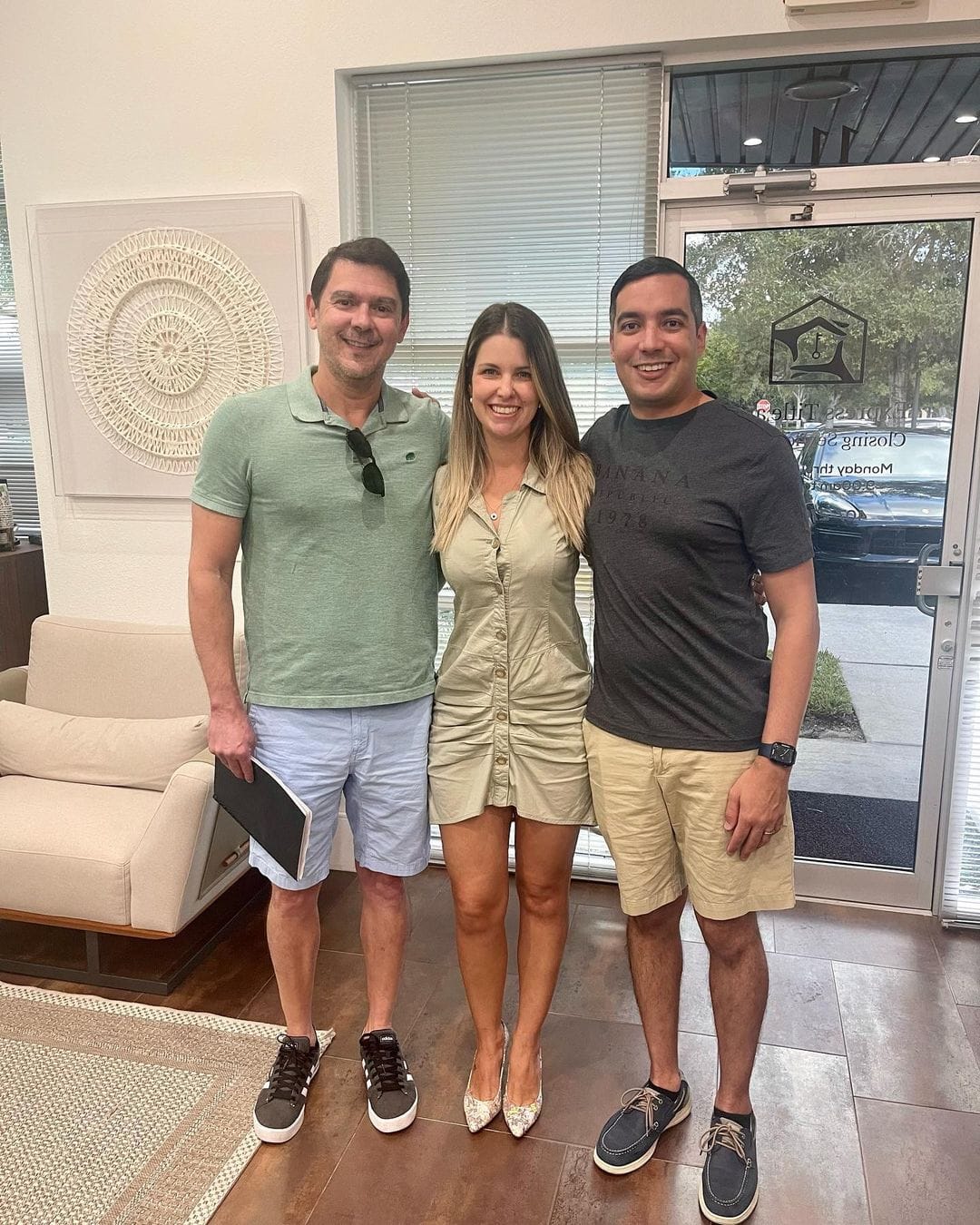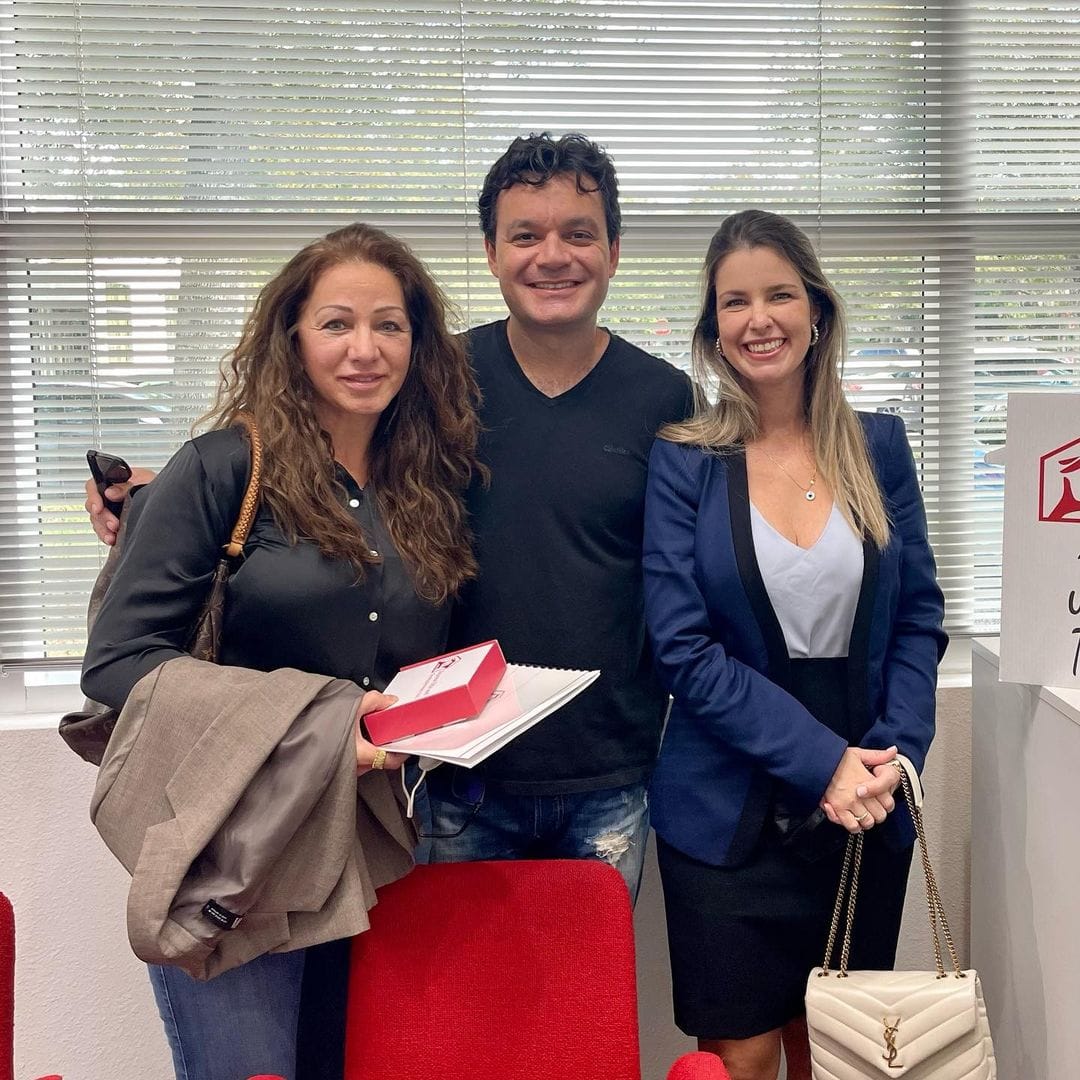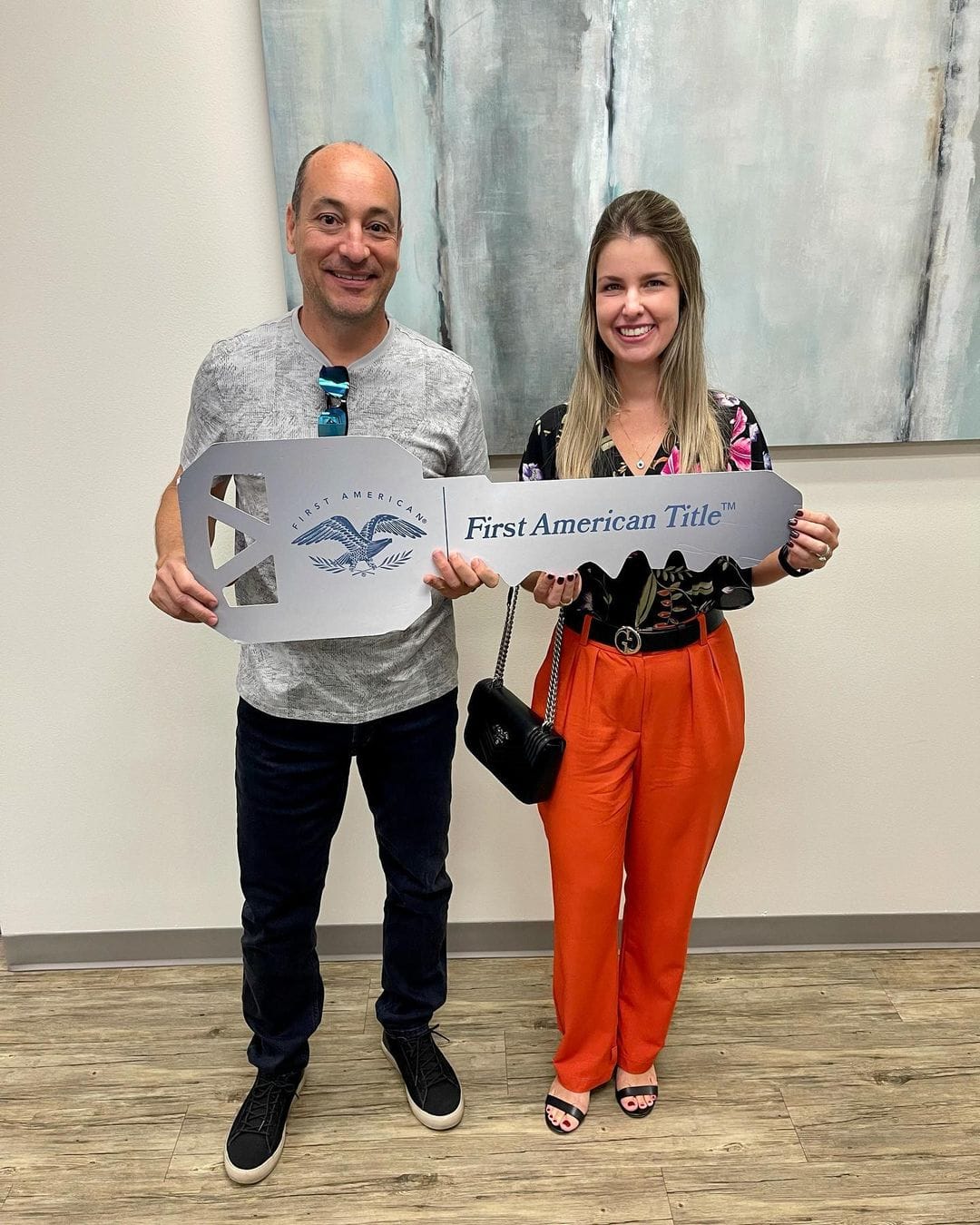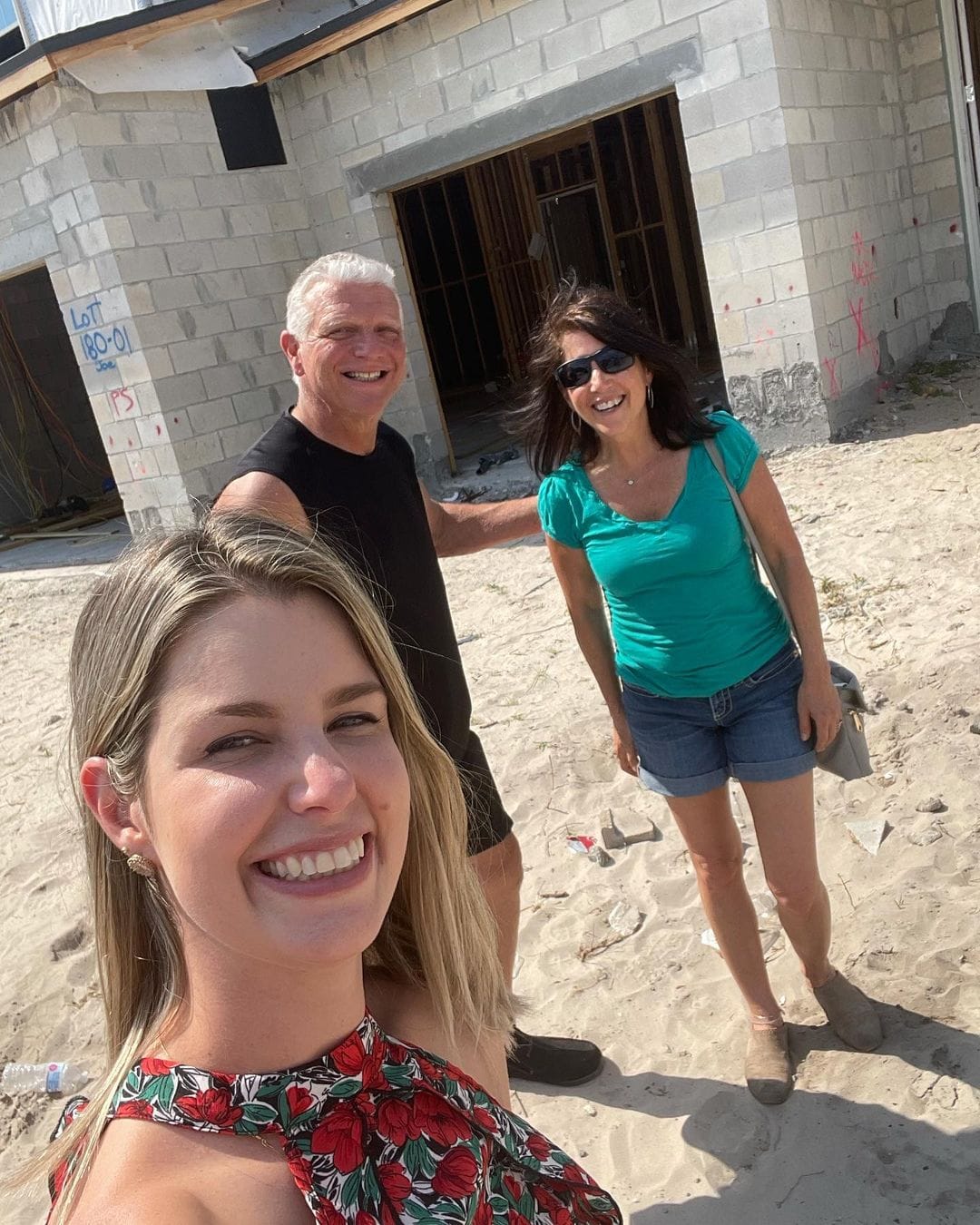Guia Completo 2026: Financiamento e Compra de Imóveis em Orlando para Brasileiros
Comprar (e até financiar) imóvel em Orlando sendo não residente é totalmente possível — desde que você entre com a estrutura correta: documentação, origem de recursos, entrada, reservas e um plano claro para o custo operacional.
O que você vai dominar neste guia
Orlando segue no radar do brasileiro por uso em férias, renda em dólar e diversificação patrimonial. O objetivo aqui é te dar método — não “promessa”.
Quais linhas atendem brasileiros não residentes (Foreign National / Non-QM) e o que muda na prática: entrada, documentos and reservas.
Entrada + closing costs + impostos + seguro + HOA/CDD. Onde a maioria erra: custo operacional subestimado.
Decisão estratégica: comprar em pessoa física vs LLC (risco, sucessão e financiamento). Caso a caso, sem “receita pronta”.
Do pré-approval ao closing: contingências, inspeção, appraisal, underwriting e setup operacional (seguro/escrow).
1) Brasileiros podem financiar imóvel em Orlando?
Sim. E na prática, você costuma cair em uma destas rotas:
- Entrada maior é comum (frequentemente 25%+), variando por perfil e tipo de imóvel.
- Comprovação + compliance: renda e origem lícita dos recursos (documentos “limpos” aceleram tudo).
- Reservas: meses de parcela em conta/ativos, conforme underwriting.
- Produto: pode haver taxa fixa e modelos híbridos (ex.: fixo por alguns anos e depois ajustável).
Estratégia: pré-aprovação forte melhora sua posição na oferta — principalmente quando o vendedor quer previsibilidade no closing.
- Para quem prioriza comunicação and processo em vez de “milagre de taxa”.
- O próprio banco descreve programas sujeitos a crédito e com termos que podem mudar sem aviso.
Reference: BB Americas — Residential Loans.
2) Comparativo direto (o que muda na prática)
| Criterion | Lender americano (Foreign National) | Banco com suporte multilíngue (ex.: BB Americas) |
|---|---|---|
| Prohibited | Faixa comum 25%+ (varia por risco e imóvel) | Também costuma pedir entrada alta; condições variam |
| Crédito/Histórico | Em muitos programas, não depende de SSN/score; pesa documentação e capacidade | Similar: foco em documentação e capacidade de pagamento |
| Taxa/Produto | Varia por dia; pode haver taxa fixa ou híbrida | Idem; sempre sujeito a crédito |
| Velocidade | Pode ser rápida com documentação “limpa” | Pode ser eficiente pela triagem em PT-BR |
| Melhor para | Investidor pragmático que quer alavancar | Perfil que prioriza comunicação e previsibilidade |
3) Custos que o brasileiro precisa colocar na conta (sem surpresa)
Preço de compra é só a porta. O que decide tranquilidade é o caixa para fechar + o custo recorrente para sustentar.
Além da entrada, é comum prever uma faixa de 2% to 5% do preço de compra em closing costs (fora a entrada). Varia por tipo de empréstimo, condado e negociação.
Source: CFPB.
- Documentary Stamp Tax (deed): padrão de US$ 0,70 por US$ 100 (exceto Miami-Dade em situações específicas). Florida DOR.
- Nonrecurring Intangible Tax (mortgage): taxa estadual de 2 mills (0,002) sobre a obrigação garantida. Florida DOR.
Property tax depende do valor tributável e das millage rates locais. Use este item como variável (não promessa) e valide no condado/cidade.
Dica de auditoria: peça a estimativa anual com base no imóvel específico e confirme com documentos do condado no underwriting.
Seguro é uma das linhas que mais altera seu custo operacional. Referências recentes divulgaram média em torno de US$ 3.748/ano, com variação grande por telhado, zona de risco e cobertura.
Reference: Florida Realtors.
Communities planejadas podem ter HOA (e em alguns eixos, CDD). Isso entra como custo fixo e impacta financiamento, caixa e rentabilidade. HOA é contrato social: padrão, regras e custos recorrentes.
Se sua decisão é para morar: onde morar em Orlando • condomínios em Orlando.
4) Comprar em nome pessoal ou via LLC?
É aqui que muita gente erra por pressa. A estrutura certa depende de objetivo, financiamento e planejamento patrimonial.
- Mais simples para uso pessoal.
- Ponto crítico: sucessão/estate tax para não residentes pode exigir declaração quando ativos situados nos EUA excedem US$ 60,000.
Fonte oficial: IRS (Estate Tax / 706-NA).
- Pode fazer sentido por camada de responsabilidade e organização (caso a caso).
- Com financiamento, alguns lenders restringem ou encarecem estrutura em empresa.
Ponto de controle: defina estrutura com advogado/contador antes do contrato — não depois.
5) FIRPTA, ITIN e imigração (ajuste de expectativa)
Ao vender imóvel nos EUA sendo estrangeiro, pode existir retenção na fonte. Instruções do IRS citam taxa geral de 15% em muitos cenários, com exceções/reduções dependendo do caso.
Sources: IRS (FIRPTA) • Instructions Form 8288 (Rev. 1-2026).
ITIN é o número fiscal do IRS para quem não tem SSN e precisa cumprir obrigações fiscais federais. Muitas vezes aparece com renda de aluguel, declarações e/ou venda.
Source: IRS — Form W-7 (ITIN).
Comprar imóvel por si só não concede status migratório. EB-5 exige investimento qualificado e regras próprias; E-2 depende de tratado (país elegível).
- EB-5: valores mínimos (referência USCIS): US$ 1.050.000 (padrão) ou US$ 800.000 (TEA/infra). USCIS.
- E-2: lista de países com tratado: State.gov e visão geral: USCIS (E-2).
Se o objetivo envolve imigração, trate como projeto separado com advogado de imigração — regras mudam.
6) Processo de compra (do pré-approval ao closing, sem ruído)
A ordem importa. O erro clássico é visitar “no impulso” e só depois descobrir custo real e exigências do banco.
1) Estratégia e triagem (objetivo + caixa + teto mensal) ▾
2) Pré-approval / pré-qualificação (se for financiar) ▾
3) Oferta e contrato (cláusulas, prazos e contingências) ▾
4) Earnest money em escrow + inspeção + appraisal ▾
5) Underwriting final (“clear to close”) + seguro ▾
6) Closing com title company (assinatura, registro e transferência) ▾
Quer comprar com controle (sem “surpresa de custo” no closing)?
Eu te devolvo um mapa de caixa com entrada + fechamento + custos fixos (seguro/impostos/HOA) e te digo o caminho mais competitivo para o seu perfil.
Observação: juros e programas são sujeitos a crédito e podem mudar sem aviso.
Receber Checklist 2026 + Estimativa de Caixa para Fechamento
Preencha em 1–2 minutos. Com isso eu consigo estimar entrada + closing costs + custos fixos (impostos/seguro/HOA) e orientar o caminho mais competitivo para o seu perfil.

































